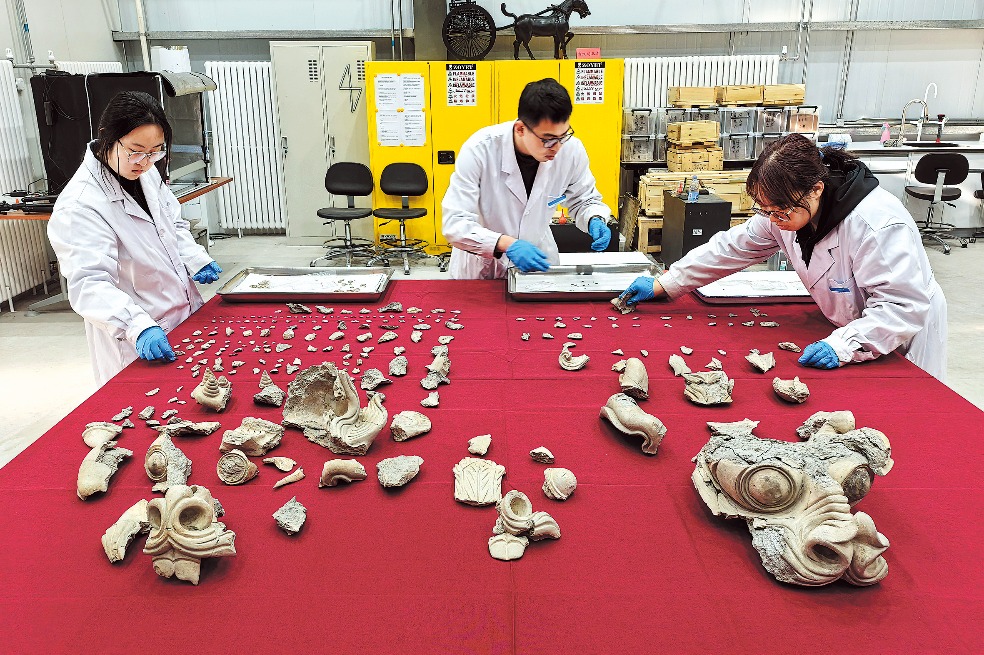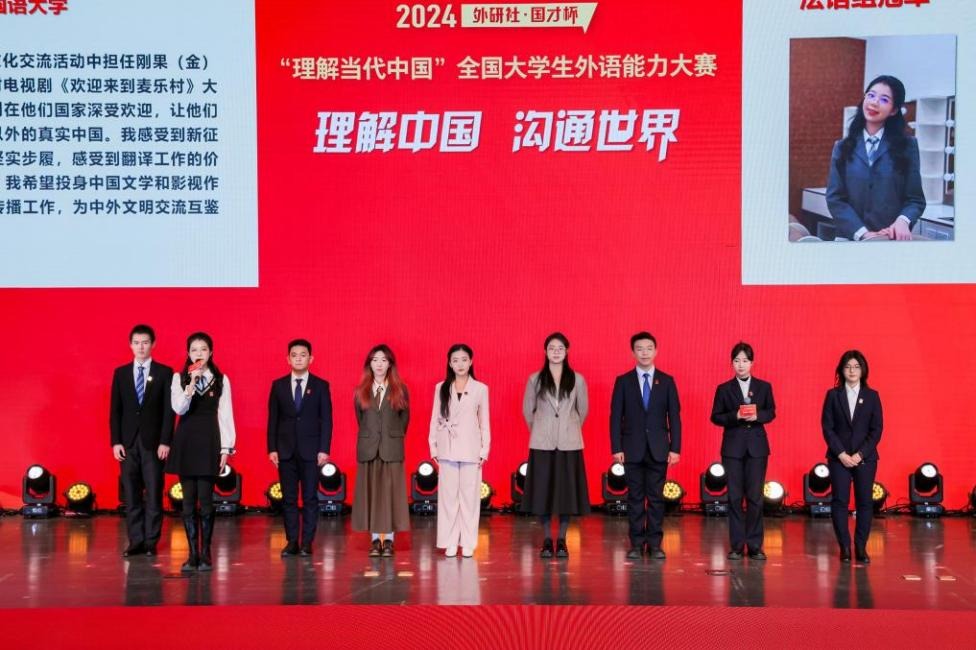Inclusive high-tech finance can better help customers


At the end of 2023, the release of ChatGPT, developed by OpenAI, set off a fresh wave of innovations in artificial intelligence technology, transforming industries worldwide. One sector that has undergone profound changes is finance, with AI playing a significant role in advancing inclusive finance.
Inclusive finance aims to extend financial services to every corner of society, ensuring accessible, efficient and affordable financial solutions for individuals and businesses alike. AI is accelerating this journey toward broader and more accessible financial inclusion, bringing convenience to those who need it most.
In remote rural areas, farmers can now access tailored agricultural insurance and financing products through a smartphone. Similarly, those hardworking vendors who sell fruits and vegetables in the local markets can apply for a short-term loan through smartphone thanks to AI. Behind these seemingly effortless interactions lies the power of AI, quietly transforming the way financial services are delivered.
By leveraging big data, AI can create detailed profiles of potential customers, including their income levels, spending habits and creditworthiness. This allows financial institutions to provide personalized services that meet individual needs. For example, banks collect vast amounts of client information through transactions, usage patterns and external data sources such as credit reports, business registrations and tax records. With customer consent, AI analyzes these data using algorithm to identify potential small and medium-sized enterprise borrowers. AI can also predict customer preferences and behaviors, offering fully automated and personalized financial services.
This precision-targeted approach improves customer acquisition while ensuring that services are tailored to suit the right people. AI enables financial institutions to use highly customized marketing strategies, making it possible to recommend the right products to the right customers.
And channels such as text messaging and mobile apps, and social media platforms like WeChat allow banks to reach potential clients more effectively. The result? Broader coverage and deeper penetration of financial services into underserved communities.
Traditional financing services are often burdened by labor-intensive processes, making them costly and slow. SMEs, with their smaller loan sizes, high frequency of transactions and short repayment cycles, are particularly underserved by traditional banking systems due to asymmetric information and poor service delivery. But AI is helping transform how financial institutions operate, moving away from manual, time-consuming processes toward seamless, online solutions.
AI-powered services such as intelligent customer support systems offer round-the-clock assistance, answering customer queries on loan applications, account balances and more. This significantly enhances customer satisfaction, providing instant responses to a wide array of enquiries.
In addition, AI has given rise to a variety of innovative financial products. For instance, AI-driven robot-advisers can prepare personalized investment portfolios based on a user's financial condition, risk tolerance and investment goals. This democratizes wealth management, making it accessible to even the most inexperienced investor, simplifying complex investment processes, and empowering users to take control of their financial future.
Financial institutions are increasingly relying on AI-driven risk management systems that integrate with every stage of the lending process, from pre-loan assessments to postloan monitoring. By using advanced machine learning algorithms, banks can identify and mitigate risks with remarkable accuracy. Traditional risk management methods, which often depend on manual reviews and in-person checks, are time-consuming and prone to errors. AI, on the other hand, enhances risk control by analyzing vast datasets in a short time, heeding early warning signals, and detecting fraudulent activities.
For banks, incorporating AI into the credit approval process offers significant advantages. Automated systems drastically reduce the time required to evaluate loan applications, while AI models assess multiple factors — such as credit scores and repayment histories — to accurately measure a borrower's creditworthiness. Fraud detection systems powered by AI further bolster financial security by spotting inconsistencies or suspicious patterns that might otherwise go unnoticed. This provides banks with a robust defense mechanism against bad loans and ensures safer, more efficient financial operations.
The traditional reliance on physical bank branches, rural service centers and in-person outreach teams is giving way to AI-driven digital platforms. AI is enabling financial institutions to shift toward integrated, agile and intelligent service delivery systems, drastically reducing operational costs while expanding the availability of financial services. With AI, institutions can provide 24x7 services nationwide, eliminating the constraints of time and location.
AI-powered systems break down the data silos that once isolated different financial services, allowing for comprehensive integration and data sharing. This seamless access to customer data enables financial institutions to offer more personalized, holistic services.
In the years ahead, we can expect AI to play an even bigger role in driving social and economic development, improving people's living standards, and fostering greater financial inclusion globally. The potential for AI-powered inclusive finance to uplift underserved communities, stimulate economic growth and enhance people's quality of life is immense. And this journey is just beginning.
Fang Lifa is general manager of Inclusive Finance Department, Hengfeng Bank Sun Yunchuan is director of International Institute of Big Data in Finance, Beijing Normal University
The views don't necessarily reflect those of China Daily.
If you have a specific expertise, or would like to share your thought about our stories, then send us your writings at opinion@chinadaily.com.cn, and comment@chinadaily.com.cn.
































